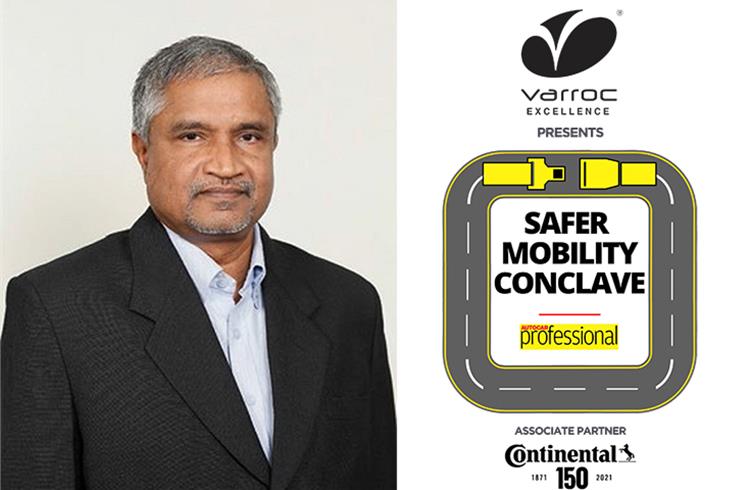Rane-TRW's G Parthipan: ‘Greater awareness vital for better safety norm implementation.'’
The CEO of Rane–TRW says there is need for greater awareness and stricter enforcement of regulation along with affordable tech to reduce road accidents in India.
India, unfortunately, accounts for 11 percent of road fatalities globally with 150,000 lives lost annually on Indian roads. Most of these happen on highways, According to G Parthipan, CEO, Rane–TRW, “Highways are where around 60 percent of the accidents happen. Most of these mishaps are mainly due to high speed.”
Speaking at a panel discussion on ‘Pushing the safety envelope- How to make mobility safer’ at the Safer Mobility Conclave organised by Autocar Professional on May 20, Parthipan added that strict law enforcement is also necessary to reduce accidents, “Of that 60 percent, around 37 percent comprises two-wheelers and 30 percent of this is because of riders not wearing helmets. Making helmets mandatory can reduce about 10 percent of the death,” he said.
“There is active and passive safety. Active safety is all about the action that is taken to prevent an accident. Aids like camera-based systems and collision warning can be seen in few medium and high-end cars. In passive safety, we concentrate on how to minimize the impact after the accidents. This includes seatbelts, airbags and more,” the Rane-TRW CEO added.
Parthipan stated that there are three stakeholders who can ensure safety on the roads: OEMs, government and suppliers. Regulations like making ABS mandatory and government drives to increase awareness coupled with constant technology development and affordable will help in creating a comprehensive safety eco-system.
Affordability is a big factor in technology adoption and volume can help bring down prices. Parthipan pointed out that, “Over the past 4-5 years, there is around 15 percent of price reduction in airbags due to the increase in volumes, localisation and local engineering. Without seatbelts, an airbag does not make sense. Beyond a certain point from OEMs, it all depends on the government to implement. Many end users' perception on safety is different. Greater awareness in consumers is vital for better safety norm implementation,” he concluded.
RELATED ARTICLES
Bosch hydrogen engine tech-powered truck to be on Indian roads this year
The global supplier of technology and services is betting big on both electromobility and hydrogen. While announcing the...
IIT Bombay inaugurates Arun Firodia Research Floor
IIT Bombay, one of India’s top technical and research institutions, honours Kinetic Group chairman Dr Arun Firodia, one ...
Maruti Suzuki expands capacity at Manesar plant by additional 100,000 units
New assembly line at Plant A expands total manufacturing capacity at the Manesar plants to 900,000 units per annum. Alon...





 20 May 2021
20 May 2021
 5746 Views
5746 Views





 Autocar Pro News Desk
Autocar Pro News Desk




